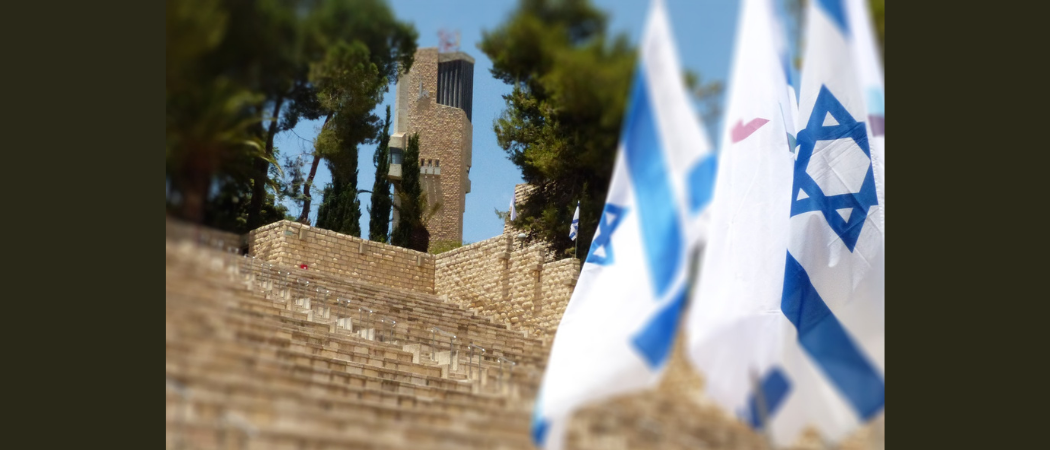Labs in Israel have emptied as reservists are called up and foreign researchers fly home. With some scientists still under Hamas rocket fire, Israeli academics want the European Research Council to push back call deadlines

A view of the Hebrew University of Jerusalem. Photo: Hebrew University of Jerusalem / Facebook
Israeli scientists have described how Hamas’s attack on the country has all but brought research to a standstill, with researchers now called up for a military assault on Gaza.
With many Israeli academics mourning the deaths of students and colleagues, the impact on science is not top of anyone’s mind. But given Israel’s significance in the EU’s Horizon Europe research and innovation programme, the war threatens to delay dozens of projects, and scientists in Israel are pleading with Brussels for flexibility*. Israel participates in more than 5% of all Horizon projects and has won more than €500 million from the programme so far.
“My friends who are now preparing their applications are under immense pressure,” said Noam Gidron, a political scientist at the Hebrew University of Jerusalem, who won a European Research Council (ERC) starting grant in September. “It's very hard to complete an ERC application when your home is literally under fire and there is no daycare,” he said.
On October 7 Hamas launched a surprise attack into southern Israel from the Gaza strip, massacring hundreds of civilians and kidnapping around 200 hostages. In response, the Israeli government has launched hundreds of air strikes, called up 360,000 reservists – in a country of fewer than 10 million people - and cut off water, food and fuel supplies to Gaza.
Most immediately, Israeli academics are reeling from shock at the brutality of the attacks, leaving little mental space for research right now.
“It's a small country so we all know someone who knows someone who was actually there, killed, kidnapped, or escaped with their lives: colleagues, students, children of friends,” said Michael Elbaum, a cell scientist at the Weizmann Institute of Science and recipient of an ERC advanced grant last year.
“Schools are closed so Israeli parents are mainly with their children at home. We run to the shelter when the alarm sounds,” he said, referring to continued Hamas rocket attacks. “We are all glued to the news in one medium or another.”
Scientists were among those killed by Hamas, including 81-year-old Sergey Gredeskul, a theoretical physicist at Ben-Gurion University. He was reportedly found shot dead in his home along with his wife, Viktoria Gredeskul, a mathematician.
“With so many of our students and faculty called to the military, killed or kidnapped by Hamas in their brutal massacres in the cities around the Gaza strip, understandably the research activity had to slow down,” said Shira Chapman, an ERC grantee at Ben-Gurion’s physics department.
From lab to battlefield
Multiple Israeli ERC grant winners told Science|Business that younger Israeli research students been called up to the military, emptying labs of researchers.
“Currently, I have stopped all research activities,” said Roi Livni, a machine learning expert at Tel Aviv University and winner of an ERC starting grant in September. “My students have been drafted to the army reserve.” Livni is too old to be called up, but has dropped his day job to collect food, toys and warm clothes for survivors of the attack who were forced out of southern Israel.
“In every family, there is one person enlisted at least,” said Yuval Feldman, a legal scholar at Bar-Ilan University, whose daughter has been called up. Even for those not enlisted, the stress over family and friends will make the creative thinking required by science exceedingly difficult, said Feldman, who holds an ERC advanced grant. Of his 15-person research team, three have been called up.
Many Israeli grant winners also warned that foreign members of their research teams – understandably - had flown home to safety, depleting their teams. Foreign governments have offered to evacuate their citizens from Israel following the outbreak of war.
There are 400 - 500 international research students at the Hebrew University of Jerusalem alone, said Aharon Palmon, the university’s vice president for research and development. “Of course, naturally, they are either leaving Israel or not coming back to Israel,” he said.
“Long term, I’m worried that it would be very hard to recruit international students after these terrifying events,” said Efrat Shema, an epigeneticist at the Weizmann Institute of Science, and winner of an ERC starting grant.
Two of her students have been drafted, one has returned to Italy, and a German student who planned to come to her lab has cancelled her trip. “We are under constant rocket attacks so we can’t leave our house […] so the lab is essentially closed,” Shema said.
Many flights have been cancelled, stopping Israeli academics from participating in the conferences that are essential to build new research collaborations. Shema was set to present papers in Spain and Australia this month, but the war has scuppered these plans. “This has a great impact on the exposure of our science,” she said.
Calls for more time
Given the disorder of the war, many Israeli researchers now want the ERC to push back deadlines for upcoming calls. The country has been highly successful in recent applications rounds, with Israelis winning more starting grants last month than either British or Spanish applicants.
There have been discussions with the Israel-Europe Research & Innovation Directorate (ISERD), the Israeli agency that handles research relations with Europe, about a 2 – 4 week delay for impending ERC calls for all applicants, said Palmon. “Otherwise the situation will cause a dramatic reduction in our success rates,” he said.
Applications for 2024 starting grants are due next week on 24 October, and 8 November for synergy grants.
The ERC did not respond to a request for comment before Science|Business’s deadline.
ISERD said it would work to maintain Israel’s research links with Europe. “Following the horrific and barbaric attacks on October 7 we are doing everything we can to make sure that our excellent scientific and academic community will continue its R&I contribution to the European community. This includes talking to all our international partners to ensure the right conditions are in place,” said Shlomi Kofman, ISERD’s managing director.
The ERC is not the only part of Horizon Europe that will be affected. Israel has won €101 million for its work as part of industrially-focused R&D consortia in Pillar 2 of the framework programme. Israeli teams coordinate four such consortia, including Cracksense, a project to monitor and combat the damage to harvests when the skin of fruit cracks. The incidence of cracking has dramatically increased in the last two decades, probably due to climate change.
Some of the researchers and students working on the project have been enlisted, said Victor Alchanatis, a researcher at the Volcani Institute, an agricultural research organisation in Northern Israel that is coordinating the project. “The main limiting factor for the moment is the lack of personnel to carry out the work in the field and the restrictions on flying drones anywhere within Israel,” he said.
Longer term impact
The ongoing impact on Israeli science, and Horizon Europe more generally, depends on how long the war drags on.
Palmon thinks established collaborations in Horizon Europe will continue due to personal connections, but new ones might be hard to forge, given travel disruption and the risk of having a partner in a state at war. “People are running out when there is uncertainty,” he said.
Even when reservists return from fighting, they will hardly be able to smoothly restart scientific work, pointed out Feldman, who has attended three funerals of acquaintances killed by Hamas. “People are not machines,” he said.
Meanwhile, Israel’s bombardment and blockade of the Gaza strip has made life all but impossible for researchers there. Last week Israel bombed the Islamic University of Gaza, alleging it was being used as a base by Hamas.
Gaza only has one partner involved in Horizon Europe, a Gaza City-based think tank called Pal-Think, which is part of a project called EMBRACE, looking at democratisation in and around Europe.
“Our team haven’t been able to leave their homes. Many of them were displaced, no electricity, no internet, it is impossible to do any activity, people care about their own safety. No milk, no good water, no health services,” said Omar Shaban, the think tank’s director.
Editor’s note: Science|Business published an update in a separate article on 18 October after the ERC announced it had pushed back four call application deadlines





 A unique international forum for public research organisations and companies to connect their external engagement with strategic interests around their R&D system.
A unique international forum for public research organisations and companies to connect their external engagement with strategic interests around their R&D system.